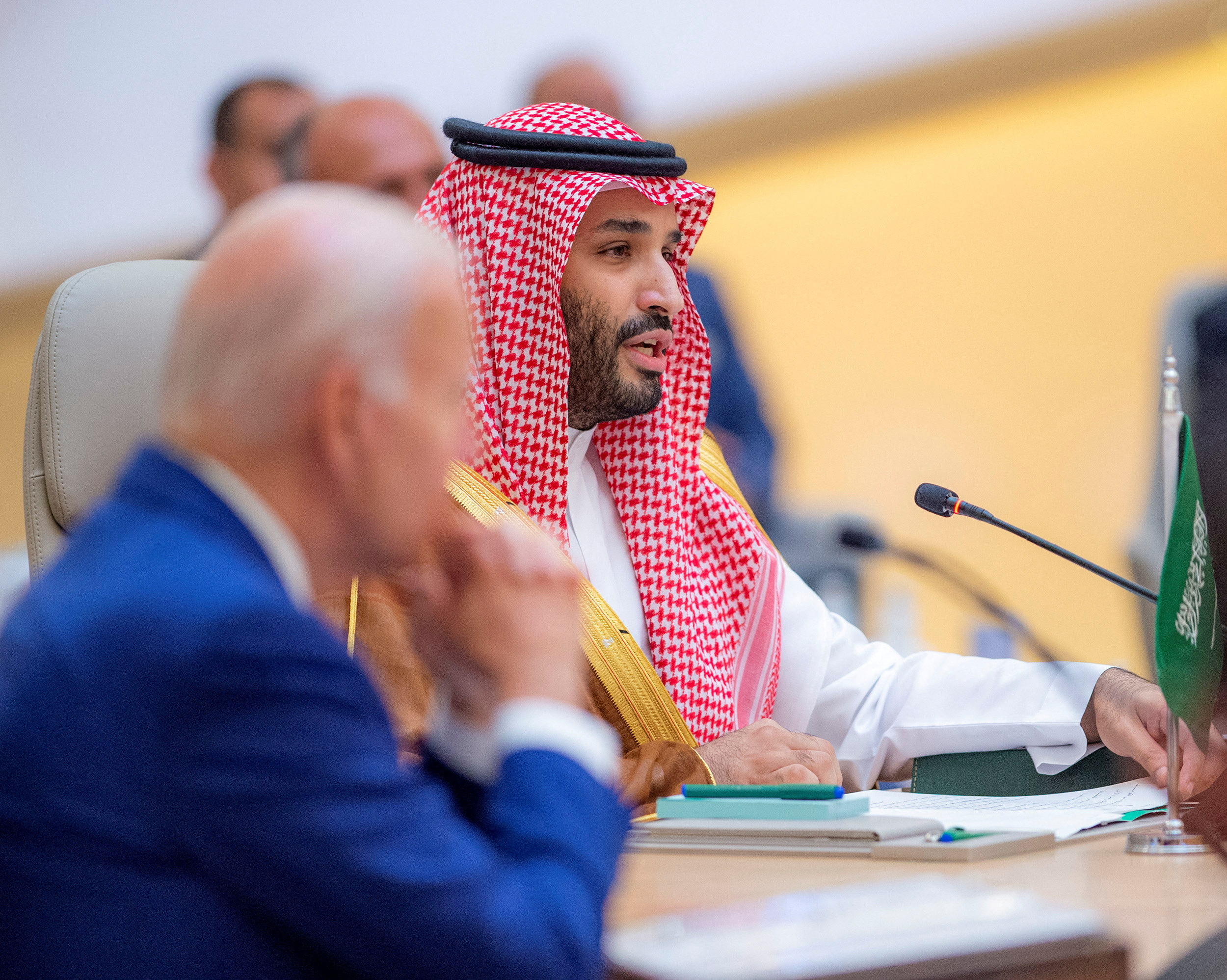
Chris Lange, FISM News
[elfsight_social_share_buttons id=”1″]
President Biden returned from his tour of the Middle East without having accomplished two of his key objectives. The president was unable to reach a deal with Saudi Arabia to produce more oil to help drive down U.S. gas prices or to gain steam on his efforts to form a national security alliance.
Biden had hoped to form the alliance to keep Iran’s nuclear ambitions in check amid his administration’s stalled efforts to reinstitute the 2015 nuclear pact with Tehran.
Biden told an Israeli news outlet the U.S. is willing to use force as a “last resort” to prevent a nuclear Iran if talks with Tehran fail. He and Israeli Prime Minister Yair Lapid signed a joint declaration Thursday to prevent Iran from acquiring nuclear weapons, with the U.S. asserting its readiness “to use all elements of its national power” in order to do so, according to a report in The Hill.
Saudi Arabia and the UAE, however, said they want regional concerns over Iran’s missile program and regional proxies to be addressed before they agree to any security alliance.
Saudi Arabia and Israel both praised former President Trump’s decision to withdraw the U.S. from the pact. Trump described the deal as the “worst ever” agreement entered into by the U.S., claiming that the world’s leading state sponsor of terror continued developing its nuke program with impunity under the agreement.
Fist bump prompts outrage
Alongside frustrations with his inability to make progress on his key items, the president also incurred a bipartisan shellacking for fist-bumping the leader whom he vowed to make a “global pariah” on the campaign trail over human rights abuses.
In the weeks leading up to Biden’s Middle East trip, the White House repeatedly denied that the president planned to meet with bin Salman, saying that the crown prince would merely be “present” at meetings. Instead, the president sat across from Salman for talks after greeting the man suspected of ordering the gruesome assassination and dismemberment of Saudi dissident and Washington Post journalist Jamal Khashoggi in 2018.
Rep. Adam Schiff (D-Calif.) tweeted that the fist bump was a “visual reminder of the continuing grip oil-rich autocrats have on U.S. foreign policy in the Middle East.”
If we ever needed a visual reminder of the continuing grip oil-rich autocrats have on U.S. foreign policy in the Middle East, we got it today.
One fist bump is worth a thousand words.
— Adam Schiff (@RepAdamSchiff) July 15, 2022
Washington Post publisher Fred Ryan called the fist bump “shameful.”
“Did Joe Biden ever fist bump a Keystone XL pipeline worker?” quipped GOP Chairwoman Ronna McDaniel, repeating ongoing GOP criticism of the president for seeking oil from foreign adversaries while refusing to open up domestic production.
Biden claimed that he made good on his promise to Khashoggi’s widow to call the Saudi crown prince to account for her husband’s death; however, Saudi’s foreign minister denied that such a discussion ever took place.
Biden was confronted by a reporter who asked if the minister had been truthful in his recounting of the meeting as the president disembarked from Air Force One Friday.
“No,” Biden responded. The president grew testy when the same reporter asked if he regretted the fist bump.
“Why don’t you guys talk about something that matters?” the president snapped. “I’m happy to answer a question that matters.”
According to a White House Fact Sheet, Biden said he and the crown prince “had a good discussion on ensuring global energy security and adequate oil supplies.”
“I’m doing all I can to increase supply for the United States of America, which I expect to happen,” Biden said in remarks from Jeddah. “The Saudis share that urgency and based on our discussions today I expect we’ll see further steps in the coming weeks.”
The White House also highlighted a new framework between the U.S. and Saudi Arabia on clean energy production.
Though the president’s trip concluded without a deliverable on oil production, he expressed confidence that oil-producing nations would make efforts toward boosting the global supply.
White House national security adviser Jake Sullivan told reporters Friday that specific action on oil supplies would be determined by OPEC, of which Saudi Arabia is a de facto leader.
